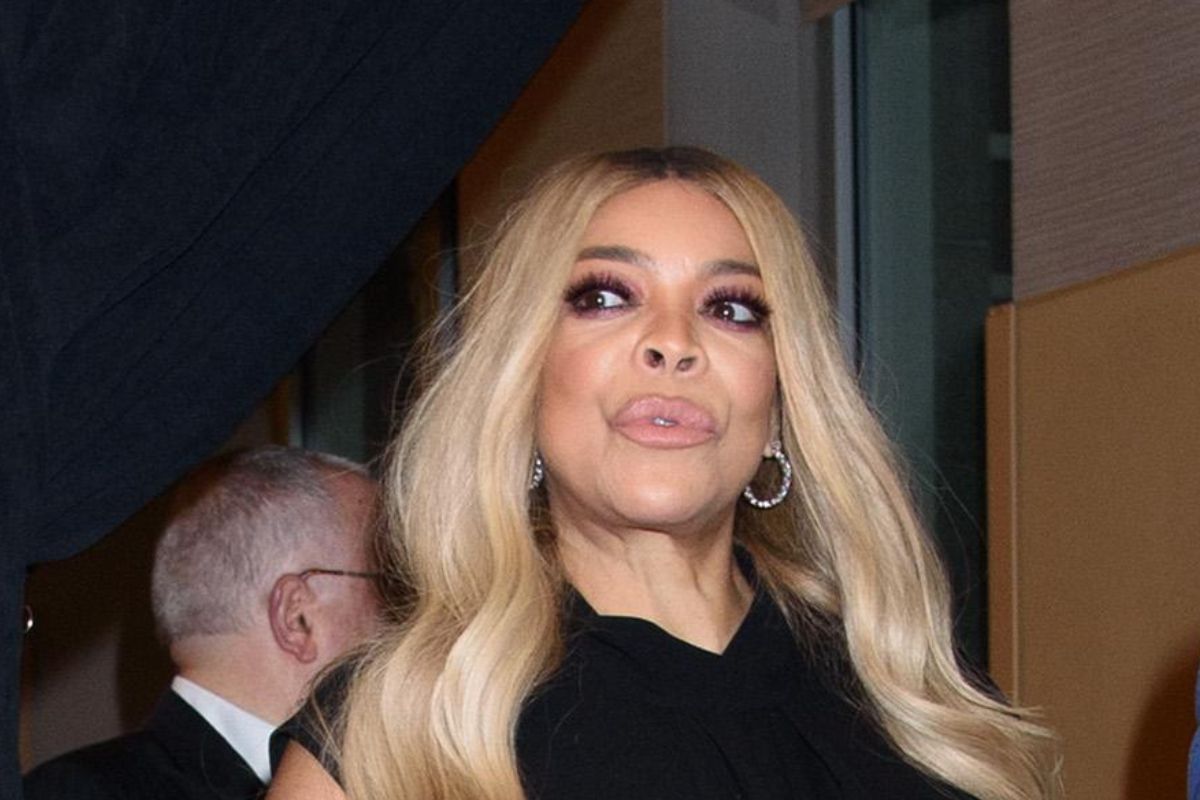The tragic saga of Wendy Williams, the iconic talk show host turned cautionary tale, has taken another saddening turn.
On Tuesday (November 26), a report from The Sun revealed that William’s court-appointed guardian, Sabrina Morrissey, is embroiled in a legal war with Lifetime, A&E and other production companies over the controversial documentary Where Is Wendy Williams? The documentary, which aired in February, painted a grim picture of Williams’ post-career struggles, sparking accusations of exploitation and counterclaims of censorship.
Williams, 60, was diagnosed with aphasia and frontotemporal dementia in May 2023, a year after being placed under a court-ordered guardianship to manage her finances and health. The four-part Lifetime docuseries, initially marketed as a glimpse into Williams’ attempt at a career comeback with a new podcast, instead revealed shocking footage of her drinking vodka in bed and suffering from panic attacks.
Fans were outraged, but the backlash didn’t stop there—Morrissey filed a lawsuit against Lifetime, A&E Television Networks and production companies Entertainment One and Creature Films, claiming the series was a “blatant exploitation” of Williams’ vulnerable state.
“This blatant exploitation of a vulnerable woman with a serious medical condition is disgusting,” Morrissey’s legal team declared in court documents obtained by The Hollywood Reporter. They argued that Williams, who was deemed “permanently incapacitated,” lacked the cognitive ability to consent to the project. Furthermore, they claimed producers misled her into believing the series would celebrate her resilience and public image.
Wendy Williams, 60, is ‘permanently’ incapacitated from dementia battle, guardian claims https://t.co/lpB8xXWJll pic.twitter.com/XkvKggGsNV
— New York Post (@nypost) November 26, 2024
Morrissey wasn’t alone in her outrage. Wendy’s longtime publicist, Shawn Zanotti, lambasted the documentary, calling it “a circus to her downfall.”
“She thought we were focusing on the comeback of her career,” Zanotti revealed while speaking to NBC News. “Wendy would be mortified if she saw how she was portrayed.”
In a separate interview with People, Zanotti added, “I feel lied to. This is not the story we signed up for.”
However, Lifetime and its co-defendants fired back with counterclaims, accusing Morrissey of misusing her authority to block the documentary’s release in an attempt to deflect scrutiny of her own actions as Williams’ guardian.
According to court filings obtained by the U.S. Sun, the network alleged that Morrissey tried to silence criticism of her “controversial and failed administration” of the guardianship. They also claimed that Morrissey’s actions were driven by personal embarrassment, as the documentary exposed her failure to adequately protect Williams, leaving the former star isolated and vulnerable.
The counterclaims went further, asserting that Where Is Wendy Williams? provided an “honest and unfiltered window” into Williams’ struggles, allowing her to connect with fans in the candid manner that defined her career. Entertainment One argued that the series captured “how her authenticity still shined” despite her decline. They also defended their payment to Williams, revealing that she was paid approximately $400,000 for her participation—contrary to Morrissey’s claim of $82,000.
Lifetime lawyers pointed to the involvement of Wendy’s family, stating that they approved the documentary’s content before its release and even gave interviews to promote it. Additionally, an appellate judge overturned Morrissey’s attempt to block the release of the series, ruling that it would violate Lifetime’s First Amendment rights.
Despite Morrissey’s accusations, Entertainment One accused her of prioritizing her reputation over Williams’ wishes. “She denied Wendy perhaps one of her last chances to honestly reach her fans,” the company stated. Meanwhile, Mark Ford of Creature Films downplayed the financial success of the project, denying that it generated “millions” in profits as alleged by Morrissey.
As the legal drama unfolds, both sides are seeking damages and attorney’s fees, with Lifetime and the production companies standing firm in their defense of the documentary. For Wendy Williams, once hailed as the “Queen of Talk,” the battle over her story is a painful reminder of her fall from grace, leaving fans divided over who is truly acting in her best interest.
It’s really, really heartbreaking to see Wendy Williams like this in an excerpt from the doc airing on Lifetime Saturday. We now know she’s been diagnosed with aphasia and dementia pic.twitter.com/NEU2WPu63R
— Meech (@MediumSizeMeech) February 22, 2024
